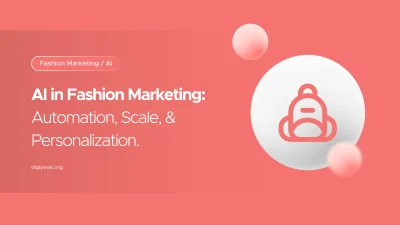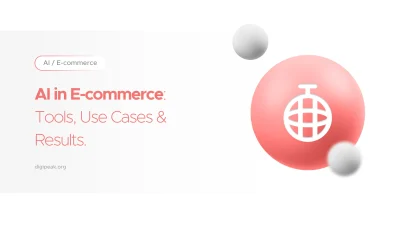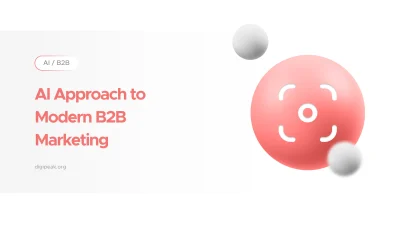
AI in Fashion Marketing: Automation, Personalization, Scale
In an industry that moves at the speed of culture, staying still means falling behind. …
13/04/2023 -
10 dk okuma
Stay up to date with Peakers
The development of artificial intelligence (AI) has the potential to be a game-changer for many industries. AI is already transforming our lives with self-driving cars and virtual assistants. But what is artificial intelligence, and how does it work efficiently? How is it addressing society’s biggest issues? And how will this advanced technology develop in the future?
You’ve found the right place if you want to find out more about AI and want to know the answers to these questions. This blog will take you on a journey through the exciting field of artificial intelligence. We will also investigate the various uses of AI in fields as diverse as medicine, business, digital marketing, and the manufacturing and transportation industries.
The future of AI is exciting, with the potential for AI-powered robots to assist humans in a wide range of tasks and industries. There’s something here for everyone, from seasoned AI experts to those just beginning their AI journey. Come along for the adventure and learn how AI is changing the world!
AI, short for “artificial intelligence,” is a type of computer science that focuses on creating robots that can think and learn like humans. The ultimate goal of AI is to make robots that have the same level of thinking as humans.
What is artificial intelligence?
How does AI work?
AI is the study and development of computer systems that think, learn, solve problems, and make decisions like humans do. These systems use machine learning, natural language processing, and computer vision to analyze data and make predictions or take actions based on that analysis.
An introduction to artificial intelligence is an important first step in understanding the technology that is driving innovation in many fields. The future of AI is dependent on continued advancements in technology and ethical considerations surrounding its development and implementation.
In the 1940s and 1950s, people first thought about programming machines to act like people. This was the start of what is now called “artificial intelligence.” In the 1950s and 1960s, digital computers made it possible to create early AI systems like the Logic Theorist and the General Problem Solver.
A period of low funding and decreasing interest in AI, described as an “AI winter,” occurred in the 1980s and 1990s. Recent improvements in machine learning and deep learning, on the other hand, have brought AI research back to life and led to big steps forward in natural language processing, image recognition, and cars that drive themselves.
In the decades after AI research began, rapid progress was made in the fields of machine learning, expert systems, and natural language processing. With the rise of personal computers and the internet in the 1990s, businesses and people had more access to artificial intelligence technology. The future of artificial intelligence is expected to bring about significant advancements in fields such as healthcare, transportation, and manufacturing.
Artificial intelligence’s full name is simply “artificial intelligence”, but it may also be referred to as machine intelligence or computational intelligence. Artificial intelligence was first put to use in the gaming industry. In 1952, Arthur Samuel created a program that could compete at a professional level in the game of checkers. Machine learning was employed to help this program get better over time. Since then, AI has found applications in fields as varied as medicine, finance, transportation, and manufacturing.
At the 1956 Dartmouth Conference, where a research plan for the field was also set up, the term “artificial intelligence” was first used. In the 1950s and 1960s, the United States was the birthplace of early artificial intelligence programs like the Logic Theorist and the General Problem Solver that we mentioned earlier.
AI development is a rapidly growing field now, with many companies investing in research and development to create new and innovative AI-powered products and services. The basics of artificial intelligence include machine learning, deep learning, and natural language processing. Information about artificial intelligence can be found in numerous online resources, including books, articles, and academic papers.
The field of artificial intelligence, or AI, is quite broad, encompassing numerous disciplines and fields of study. Examples of AI can be found in everyday life, such as voice assistants, recommendation systems, and fraud detection algorithms.
There is no limit to what can be accomplished in the field of artificial intelligence, which is expanding rapidly and has many potential uses.

Artificial intelligence (AI), as it is now, has a lot of potential to change every aspect of human life. Artificial intelligence (AI) frees up people’s time so they can work on more complicated and creative projects.
In addition, AI can help make better choices because of its ability to quickly analyze large volumes of data and come up with insights that people might overlook. In addition, AI can supplement human strengths to increase our overall effectiveness. Artificial intelligence (AI)-powered prosthetics, for instance, can aid amputees in regaining mobility and independence.
The ability of artificial intelligence to do hard tasks faster and more accurately than humans has the potential to make many industries much more productive and efficient. The potential impact of AI on society is huge, and it’s exciting to think about how it will grow and improve as time goes on
The goal of artificial intelligence (AI) is to make it possible for computers to do things that usually require human intelligence. The 3 types of artificial intelligence are narrow or weak AI, general AI, and strong AI.
There is a lot of work being done on general artificial intelligence at the moment, but it’s unclear whether or not it will ever be implemented in the actual world. Narrow AI, however, is already being utilized in many contexts, from virtual assistants to self-driving cars, and it is expected to become even more widespread in the years to come.
In the ever-expanding field of artificial intelligence (AI), robots are being programmed to learn, solve problems, and make decisions—all of which are generally attributed to human intelligence. Machine learning is an important part of artificial intelligence that involves teaching computers to spot trends and learn from experience.
Another important topic is natural language processing, which lets computers understand and make sense of human speech. Another exciting area of study is robotics, which focuses on the creation of robots that can carry out manual labor such as assembly, cleaning, and even surgery. The field of computer vision focuses on teaching computers to analyze and make sense of visual data like photographs and videos.
Lastly, expert systems involve making smart systems that can make decisions in a certain field, like finance or healthcare. In sum, AI is a multifaceted science with several sub-disciplines, each of which has its own set of difficulties and opportunities.
The science of artificial intelligence (AI) is expanding rapidly, and its applications may be seen in many different fields. One sector where it has had a profound impact is healthcare, where it has improved patient care by improving both diagnosis and therapy suggestions. Artificial intelligence can be used to create algorithms that can sort through mountains of medical data to find the best way to treat a patient.
Artificial intelligence (AI) is used to monitor financial risks and uncover financial fraud. In a time when financial crimes are on the rise and thieves are always looking for new methods to exploit loopholes, this is more crucial than ever. Artificial intelligence systems provide a layer of defense against financial fraud by spotting anomalies and patterns that humans would miss.
AI is also having a profound effect on the transportation sector. Drones and self-driving cars are just two ways that AI is revolutionizing the transportation industry. Drones are being employed for activities like surveying and delivering items, while self-driving automobiles have the potential to greatly reduce the number of accidents caused by human error.
Artificial intelligence is utilized to boost manufacturing output. AI has found a lot of applications in robotics and factory automation. Robots can accomplish work that would be too risky or tedious for people, and automation can increase efficiency and cut down on expenses.
Last but not least, artificial intelligence is useful in the entertainment business. Video games are getting more lifelike and interesting thanks to AI, and visual effects in movies are getting more amazing and realistic.
The possible uses of AI are quite broad and deep. As technology keeps getting better, it’s likely that AI will be used in more creative ways in the future.

In conclusion, AI is a field that is growing quickly and has a huge amount of potential to improve all aspects of human life. Advances in machine learning, robotics, and natural language processing have allowed AI to develop to the point where it can do increasingly complicated jobs. As AI technology keeps getting better, we can expect to use it more and more in our everyday lives.
Digipeak is a digital marketing agency that offers a wide range of services, such as SEO, paid marketing, content marketing, social media management, creative design, and more. As a dynamic team, we are dedicated to staying ahead of the curve, so we are actively integrating cutting-edge technologies like AI and machine learning into our services.
AI marketing is transforming the way companies reach their target audience, by leveraging the power of machine learning. Digipeak is also always looking into how AI and machine learning can be used in digital marketing. Contact us to have Digipeak meet all your digital marketing needs and adapt to the ever-changing digital environment.
Get an Offer


Join Us So You Don't
Miss Out on Digital Marketing News!
Join the Digipeak Newsletter.
Related Posts

In an industry that moves at the speed of culture, staying still means falling behind. …

Do you recall when "Artificial Intelligence" in e-commerce was little more than a basic chatbot? …

The year is 2026. The digital marketing playbook from just a couple of years ago …

Before we explore the new frameworks, let's face the reality of our current environment. The …